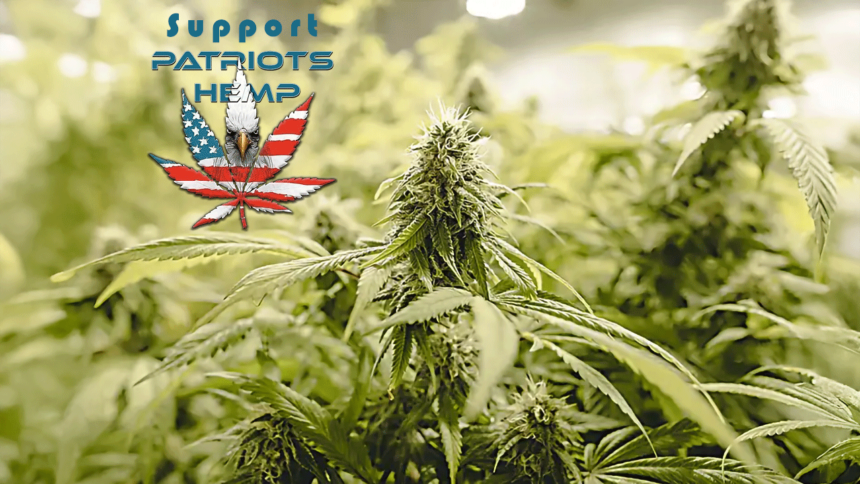As a bill to legalize marijuana in Hawaii hangs in the balance in the state legislature, a House committee has amended and advanced separate legislation on Thursday that would expand the state’s current decriminalization of cannabis by increasing amounts of the substance for which people would not face the threat of jail time and reducing certain financial penalties.
After adopting a handful amendments to the underlying measure, SB 2487, members of the Judiciary and Hawaiian Affairs (JHA) Committee voted 7–2 to recommend that the proposal be passed.
In its current form, the bill, sponsored by Sen. Joy San Buenaventura (D), would specify that possession of an ounce of marijuana or less would be subject to a $25 civil fine. Under existing law in Hawaii, possession of up to three grams carries a $130 fine.
In some cases, individuals could perform community service instead of paying a financial penalty under the new legislation.
Between one and two ounces of cannabis, meanwhile, would be punishable as a petty misdemeanor—up to 30 days in jail and a $1,000 fine. Currently that range is between three grams and an ounce, with anything between one ounce and one pound carrying a misdemeanor penalty of up to a year of incarceration and a $2,000 fine.
The bill would also create a new violation for smoking marijuana in a public area, which would carry a $130 fee with the possibility of community service.
“This is important,” Rep. David Tarnas (D), the JHA Committee chair, said of the public consumption change before the panel’s vote. “This is a significant step to deal with an issue that we heard coming up in the bill considered about legalizing cannabis use.”
Earlier this month, the Senate passed the broader legalization measure in a narrow, 25–23 floor vote. It next proceeds to the Finance Committee, where advocates expect a mixed reception.
Tarnas at Thursday’s hearing described some of the changes in the amended decriminalization bill as minor, technical fixes, while also incorporating provisions of the House bill, HB 1569, and feedback from various stakeholders, including advocacy groups such as the ACLU and Marijuana Policy Project.
Members of the panel had little discussion before holding the vote. The one representative who spoke out in opposition was Rep. Kanani Souza (R), who said she shares the view of the state’s Department of the Prosecuting Attorney. Souza previously in voted in favor of the House version of the bill.
In submitted testimony to the panel, the Steve Alm, the prosecutor of the city and county of Honolulu, wrote in “strong opposition” to the proposal, citing statistics from the marijuana prohibition group Smart Approaches to Marijuana (SAM).
The bill “would increase the black market” and “send the wrong message to our keiki that marijuana is harmless,” he said, using the Hawaiian word for child.
Moreover, Alm added, the decriminalization bill would be “doing so without any of the so-called ‘guardrails’ contained in the larger marijuana legalization bill, SB 3335″—a measure Alm and other law enforcement have also vocally opposed.
The office of state Attorney General Anne Lopez (D), an appointee of Gov. Josh Green (D), also testified that it “respectfully opposes” the bill.
“Expanded decriminalization of marijuana may increase recreational use in a way similar to legalization,” the office wrote in submitted testimony, “however, decriminalized marijuana is unregulated, untested, and untaxed. This lack of regulation and testing creates a significant public health concern, particularly as marijuana use increases.”
Lopez has said that she “does not support” legalization, despite her office writing the first draft of the current proposal.
Supporters of the expanded decriminalization bill, meanwhile, include the state Office of the Public Defender, the advocacy group the Last Prisoner Project, ACLU of Hawaii and the Drug Policy Forum of Hawai’i (DPFH), the last of which called the proposal “a modest yet significant step toward more sensible policy approaches related to cannabis in the state.”
“According to the data from the latest Uniform Crime Report, 7,457 adults were arrested on cannabis possession charges from 2011-2020” in the state, wrote DPFH Board President Nikos Leverenz, noting that enforcement of current laws are also racially and economically biased.
“The current regime of cannabis prohibition, like the larger drug war, compounds the harm of extensive involvement in the criminal legal system by Native Hawaiians,” he said, “and other residents from under resourced communities that are significantly impacted by social determinants of health.”
Among juvenile offenders in the most recent state crime report, almost three-quarters of arrests were of non-white youth, he wrote, “which is an even more pronounced disparity than adult enforcement (65.3% non-White).”
The advocacy group Marijuana Policy Project (MPP) wrote in support of changes that were adopted at Thursday’s hearing, such as reducing fines, increasing possession limits and removing penalties around paraphernalia.
“Hawaii’s three-grams limit (about six medium joints) is the lowest amount in the nation,” wrote Karen O’Keefe, MPP’s director of state policies. “It is not even 1/8 of an ounce, a common amount for those purchasing only a small quantity. The tiny threshold results in hundreds of individuals being arrested in Hawai’i each year and facing possible jail time for possessing cannabis for their own personal use.”
Looking at all state legalization and decriminalization laws, MPP said, 24 “of the 31 other laws apply to at least an ounce.”
A similar House decriminalization bill, HB 1596, cleared a preliminary floor vote in February and was referred to the Finance Committee. That measure was heard by the JHA Committee earlier that month, where it passed on a 7–1 vote.
Hawaii’s pending broader cannabis legalization proposal, meanwhile, has seen a number of amendments since it was first introduced. A change around labor peace agreements for cannabis businesses, for example, was made in committee last week. Two other panels at a joint hearing made a number of amendments that eased rules and penalties that many advocates had called too harsh.
In its current form, the proposal would allow adults 21 and older to possess up to an ounce of cannabis and up to five grams of concentrates as of January 1, 2026.
As for expungements around past marijuana offenses, earlier this month a Senate panel gutted a House-passed bill that initially would have directed the state to automatically expunge tens of thousands of arrest and conviction records for low-level marijuana possession. The amended bill instead limits the relief to a one-county pilot program covering less than 15 percent of state residents.
Last year the Senate passed a separate legalization bill that later stalled the House, but advocates are hopeful this year’s proposal could get further. Green, the governor, said last month that legalization is a “big social issue that remains” to be addressed in the state, signaling that he’d likely sign a bill to end cannabis prohibition if lawmakers send him one.
Democrats in control of Hawaii’s Senate said in January that cannabis legalization is one of their top priorities this legislative session, framing the reform as a means to boost the state’s economy.
Hawaii residents themselves seem to support the change. A recent Hawai’i Perspectives survey by the Pacific Resource Partnership found 58 percent support for legalization.
In November, the AG’s office defended an earlier version of the legislation it put forward earlier that month after Honolulu Prosecuting Attorney Steve Alm said law enforcement were firmly against legalizing marijuana. David Day, a special assistant with the attorney general’s office, said at the time that the legalization measure deliberately took into account law enforcement perspectives.
—
Marijuana Moment is tracking more than 1,400 cannabis, psychedelics and drug policy bills in state legislatures and Congress this year. Patreon supporters pledging at least $25/month get access to our interactive maps, charts and hearing calendar so they don’t miss any developments.![]()
Learn more about our marijuana bill tracker and become a supporter on Patreon to get access.
—
Advocates previously struggled under former Democratic Gov. Dave Ige, who resisted legalization in part because he said he was reluctant to pass something that conflicts with federal law. But since Green took office, activists have felt more emboldened. The current governor said in 2022 that he’d sign a bill to legalize cannabis for adults and already had ideas about how tax revenue could be utilized.
Last April, Hawaii’s legislature also approved a resolution calling on the governor to create a clemency program for people with prior marijuana convictions on their records.
As for other drug policy matters, lawmakers last month advanced a bill that would provide certain legal protections to patients engaging in psilocybin-assisted therapy with a medical professional’s approval. The measure would not legalize psilocybin itself but would instead create an affirmative legal defense for psilocybin use and possession in the case of doctor-approved use under the guidance of a trained facilitator.
The proposal has support from some state agencies, such as the Disability and Communications Access Board and governor’s Office of Wellness and Resilience (OWR), as well as a variety of reform advocates, including the Drug Policy Forum of Hawaii, the Hawaii Health and Harm Reduction Center and the Clarity Project.
Opponents include some medical groups, including the Hawaii Medical Association and Hawaii Academy of Family Physicians, which said there’s still too little information about the safety and efficacy of psilocybin.





















